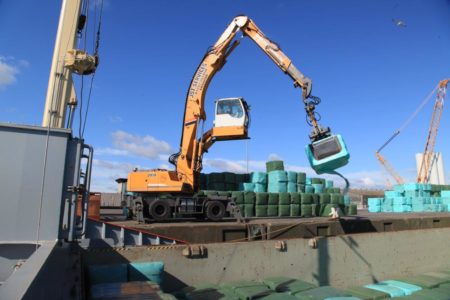The Lords’ EU Energy and Environment Sub-Committee delivered its report today titled Brexit: environment and climate change exploring the potential impact of the exit from the European Union on the UK’s environmental legislation.

In the report, the Committee claims that membership of the EU has had a ‘fundamental’ impact on environmental legislation in the UK and that withdrawal from the EU will affect ‘nearly every’ aspect of the UK’s environmental policy.
It adds that the government’s Great Repeal Bill – the piece of legislation which will bring all existing pieces of EU law into the UK statute book when the UK leaves the EU – will aid stability, but noted that it is ‘far from clear’ whether it will be comprehensive.
The Committee noted: “The Government will need to map out the EU’s environmental acquis to assess where the Great Repeal Bill will not be able to preserve legislative and policy stability, and act accordingly to ensure that environmental protection does not diminish as a result of Brexit.”
Export
Among those to provide evidence to feed into the report was Jacob Hayler, executive director of the Environmental Services Association (ESA). In his submission Mr Hayler claimed that the UK exports ‘around 4 million tonnes’ of waste as fuel to the EU, but expressed fears over potential future tariffs which could add to costs for waste management firms.
In its conclusions, the Lords noted: “Whatever the shape of the UK’s future free trade agreement with the EU, there is a strong shared interest in maintaining cross-border trade. A degree of alignment between the UK and the EU on environmental standards will thus continue to be key to maintaining access to each other’s markets across many sectors.
“Any restrictions, or the imposition of tariffs, on the UK’s trade with the EU in recycling and waste could significantly increase the costs of waste management post-Brexit. Once the UK Government has clarified the details of the FTA it is seeking with the EU, the Government, in consultation with industry, will need to assess whether its approach to waste management is still feasible and fit for purpose.”
Commenting on the findings of the report, ESA’s European policy adviser, Roy Hathaway, said: “Until now, most of the policy direction for the UK resource and waste management industry has been set by the European Union. If our withdrawal from the EU means that the Circular Economy Package will not apply to the UK, it will be vital that a long-term strategy is developed here in the UK to put in its place, to drive future investment in the sector. Much will depend on how the Government takes forward its Industrial Strategy and 25 Year Environmental Plan.”
Related Links











Subscribe for free